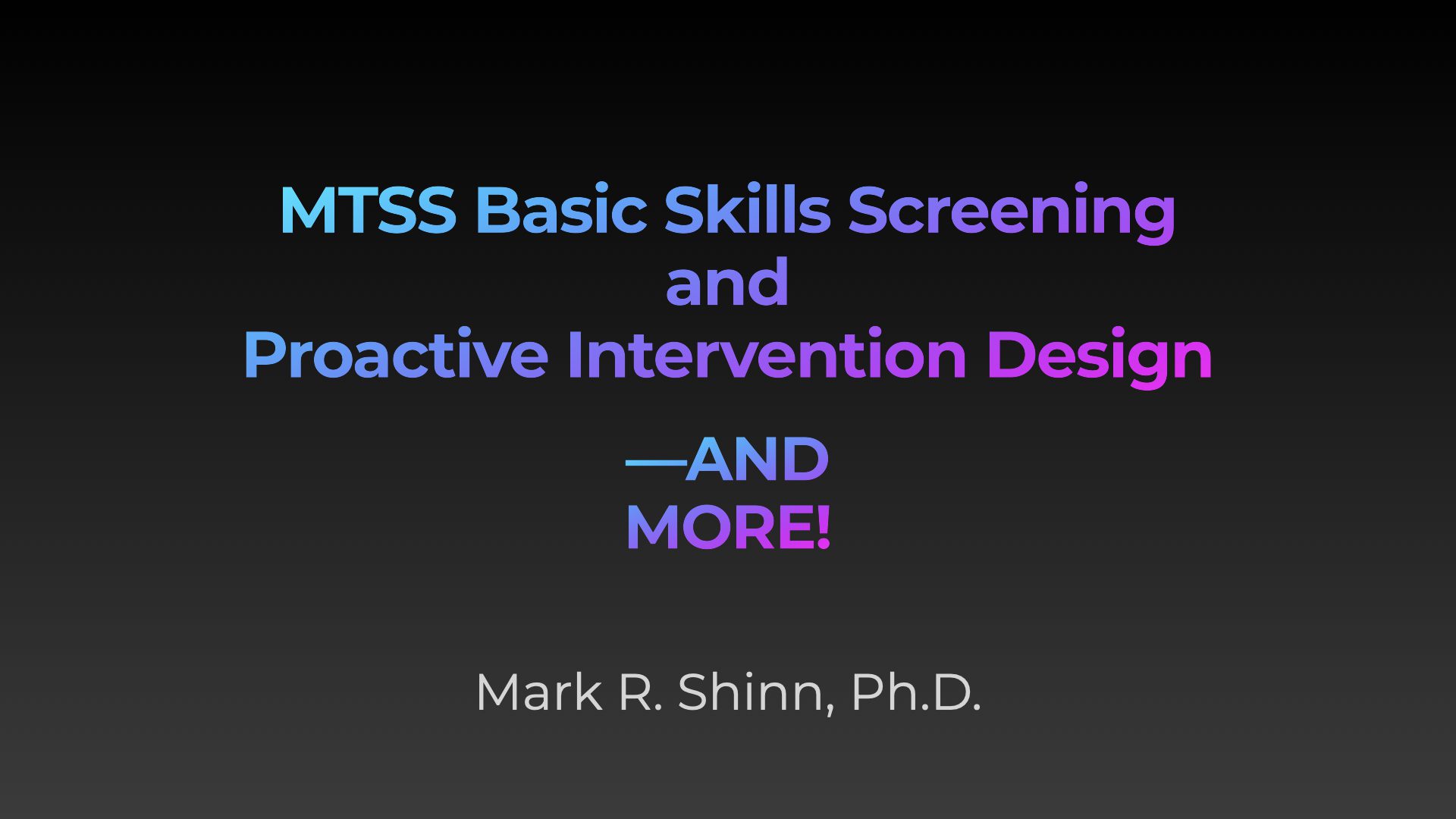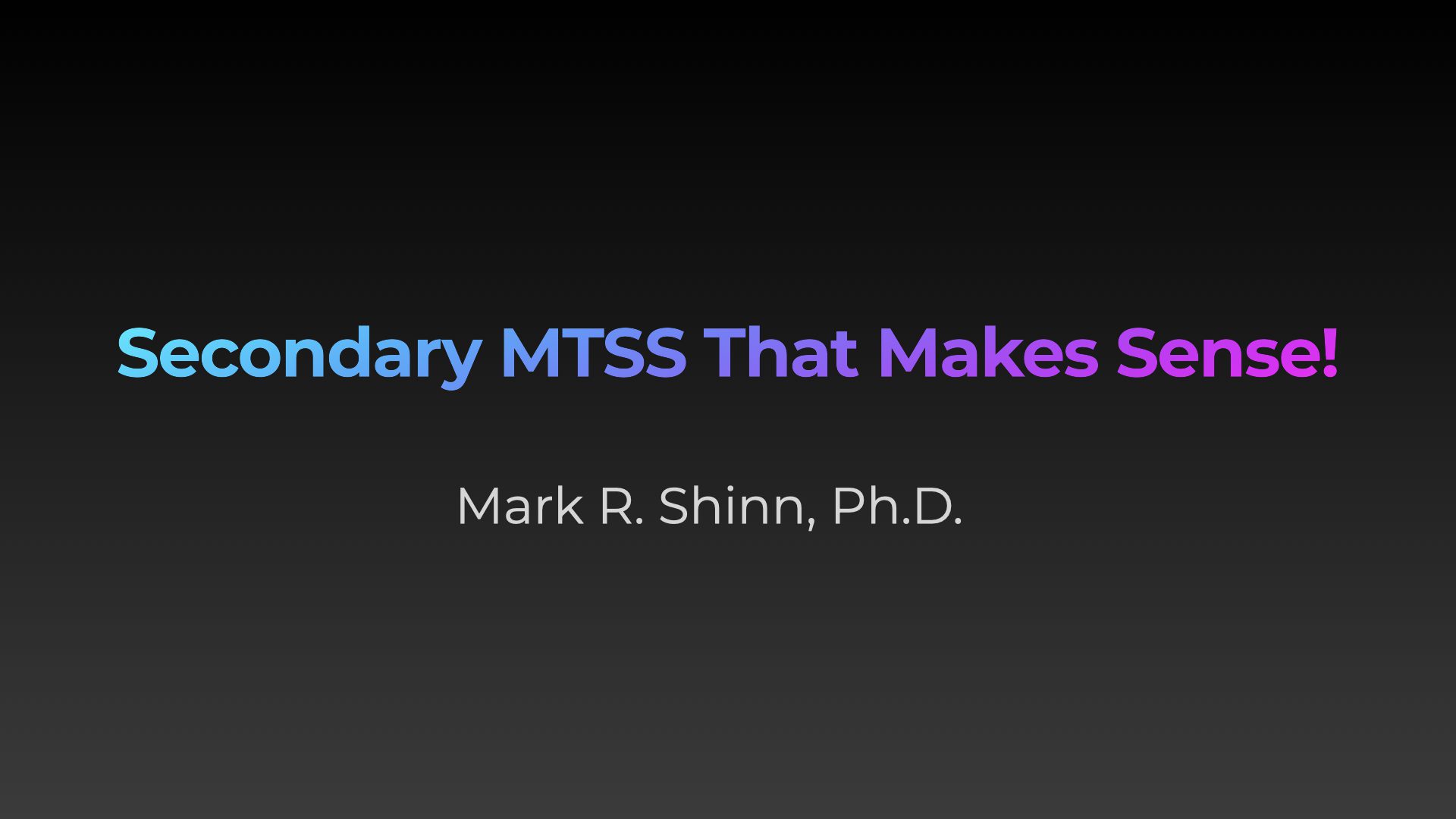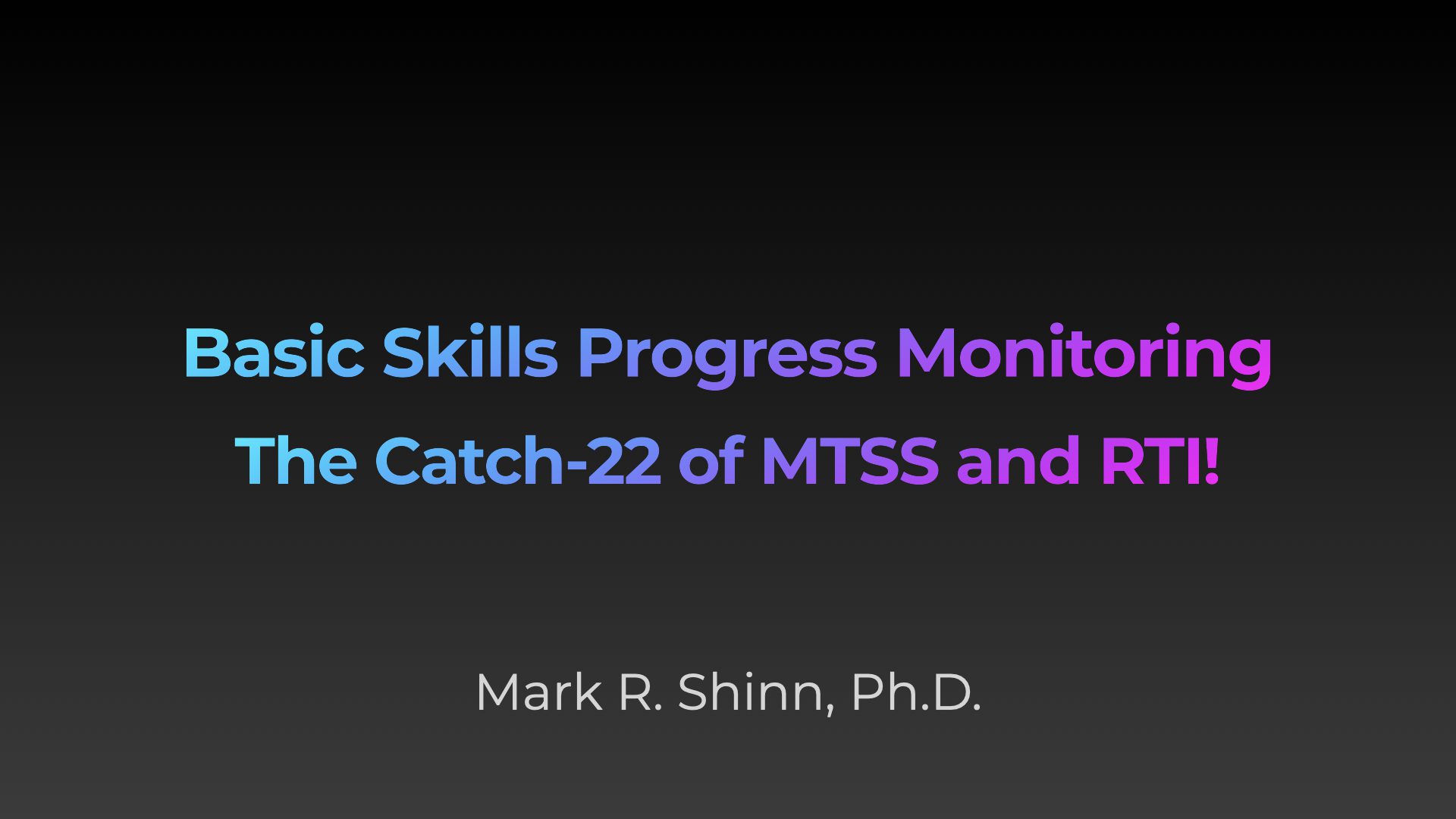Mark's Talks for $10 and More Webinars

Talk(s) for $10
Here's my idea. I'd like to create professional learning sessions on Mondays @ noon 60 minutes for E, C, and P time zones around what is typically a lunch period (12:00 PM noon) for a 1-hour discussion on a planned topic of interest within my area of expertise. I may prepare a brief presentation--and supporting references and downloadable readings if I can find some and I'll charge $10.
Some, like the first one, will be open-ended, CONSULTATION SESSIONS about MTSS implementation, CBM use, progress monitoring, SLD identification, systems change, osso bucco (a reading test here). The first one, remember, OCTOBER 18TH, 2023, WILL BE OPEN-ENDED, AND NO COST...AS IN FREE!
1 SECTION AT NOON EASTERN, 1 NOON CENTRAL 1 AT NOON PACIFIC! I MIGHT LIMIT PARTICIPATION TO 5O TO SEE HOW IT GOES! REGISTER HERE!
MTSS Basic Skills Screening and Proactive Intervention Design—AND MORE!
When observing how schools are making decisions about who may be candidates for intervention in MTSS or problem-solving over the years, I’ve observed that screening has gotten more complicated and time-consuming for schools in an MTSS and RTI model. And sadly, all the collection of data in the process, called Benchmarking or Benchmark Assessment, is underused for its original purpose, Universal Progress Monitoring (UPM), to ensure growth for all students, like wellness charts for infants and babies!
This webinar is intended to help schools examine their Benchmarking practices so they may be more pragmatic, more straightforward, more practical, and yet, used more fully. The emphasis will be when schools are using measures of the Curriculum-Based Measurement (CBM) family (e.g., aimsweb, DIBELS, Acadience, Fastbridge). These test publishers include measures that are screeners as well as diagnostic tests for potential instructional planning, and the webinar will differentiate among them, allowing teams to make decisions about whether all tests are necessary for all students and for all testing periods. The webinar will detail how Universal Screening—and Universal Progress Monitoring-- can be systematically reduced over grades until only Individual Screening of students is required. Topics of Cut Scores based on Risk—oh, those nasty triangles-- will be discussed, especially in circumstances where communities are in high or low-risk situations, and a rationale for Cut Scores based on available resources and proactive planning will be presented. This approach allows schools to schedule and staff their Tier 2 and Tier 3 interventions based on their available resources, potentially reducing the load placed on classroom teachers!
Additionally, the webinar will highlight the purposes of Benchmarking for Universal Progress Monitoring (UPM) to ensure growth and development for all students and how this information can be fully utilized to communicate to parents in parent conferences and report cards. And how these simple, time-efficient basic skills data can be used to triage students into appropriately intensive interventions aligned to intervention resources.
Opportunities for Questions and Discussion Will Be Provided:
12:00 PM – 3:00 PM Central December 15th, 2023 - Individuals $49; Teams, Schools, Districts, Organizations (greater than 3 Individuals) $99.


Secondary MTSS That Makes Sense
MTSS/RTI as typically described and even implemented often doesn't make sense to secondary teachers. The ideas of screening, Tiers, and progress monitoring are very unlike what secondary content teachers do every day. This webinar presents a practical and compelling model of how some middle and high school students still lack the basic skills they need for content area success and require intensive basic skill intervention (i.e., treatment), and other students still require support for content area success. MTSS is ideal for not only providing students with the treatment and support they need but also the support content area teachers need for their success. The webinar provides screening practices and cut scores to help schools identify which students (Who) need treatment and which students (Who) need Support.
Secondary schools are especially adept at providing Treatment if a commitment is made to an MTSS model because of their scheduling expertise. However, they may be less adept at systematically supporting students who struggle in content-area courses. When I poll content area teachers, I get estimates that teachers report more than a third of their students struggle (i.e., get grades of Fs or Ds) in their classes! These students must be tough to teach! Sadly, this situation is not the content area teachers’ fault. Like me, many content teachers were not taught how to meet the needs of diverse learners. This webinar will identify many of these strategies, as simple as explicit statements of “this are important to know” and “this isn’t important to know,” that have been shown to raise achievement. And not just for struggling students, but for all students. MTSS, when implemented with fidelity, can make the difficult job of teaching a little bit easier.
Opportunities for Questions and Discussion Will Be Provided
Times to Be Announced
Basic Skills Progress Monitoring: The Catch-22 of MTSS and RTI!
Isn’t it somewhat ironic that with all the recent emphasis on response to intervention in the last decade, to IEPs since 1977, and to the purpose of America’s schools since forever, having accurate progress monitoring data for immediate access is still a challenge in most schools?
In 1978, as part of a large research effort to support the implementation of the first federal disabilities acts, the All Handicapped Children’s Act of 1975, Congress awarded the University of Minnesota’s Institute for Research on Learning Disabilities and one of its researchers, Dr. Stan Deno, federal dollars to fund a special education research program for writing IEP goals and monitoring progress. Yes, 48 years ago!
The research yielded Curriculum-Based Measurement (CBM), and by 1982 the first refereed journal article appeared for technology for IEP teams to write simple yet scientifically sound IEP goals and monitor progress toward them. CBM tests are now readily accessible in commercial products like aimsweb, easyCBM, DIBELS 8th Ed, FastBridge, etc., but, often, it seems that they are misunderstood as 3 times per year universal screening and diagnostic testing. Little mention is made of Benchmark’s original intent to provide Universal Progress Monitoring for growth and development.
Likewise, CBM’s use for more frequent basic skills progress monitoring and especially for annual goals for IEPs, is haphazard, making decisions about progress difficult. Should decisions about benefits from previous general education interventions be necessary for eligibility for special education? Across the country, I’ve observed teams having extreme difficulty gathering data, creating a reluctance on their part to shift the eligibility process to one based on Response to Intervention (RTI) because they lack quality progress monitoring data!
This session presents simple, inexpensive, yet scientifically sound progress monitoring solutions to the 2023 dilemma, with hopes that educators will jump on the scale of technologies that are among the most powerful and inexpensive tools to impact student achievement.
Opportunities for Questions and Discussion Will Be Provided:
12:30 PM – 3:30 PM Eastern August 25th, 2023 - $49

